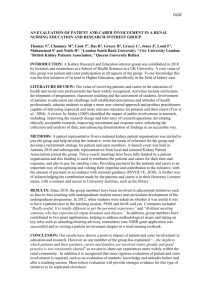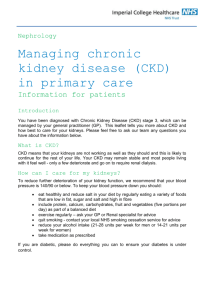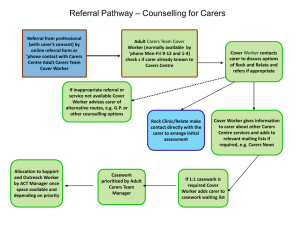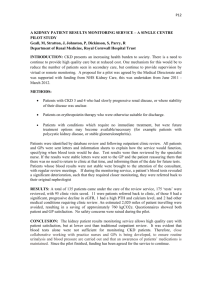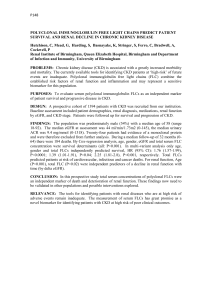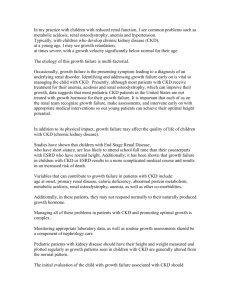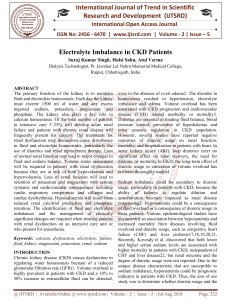Social Care in Chronic Kidney Disease
advertisement
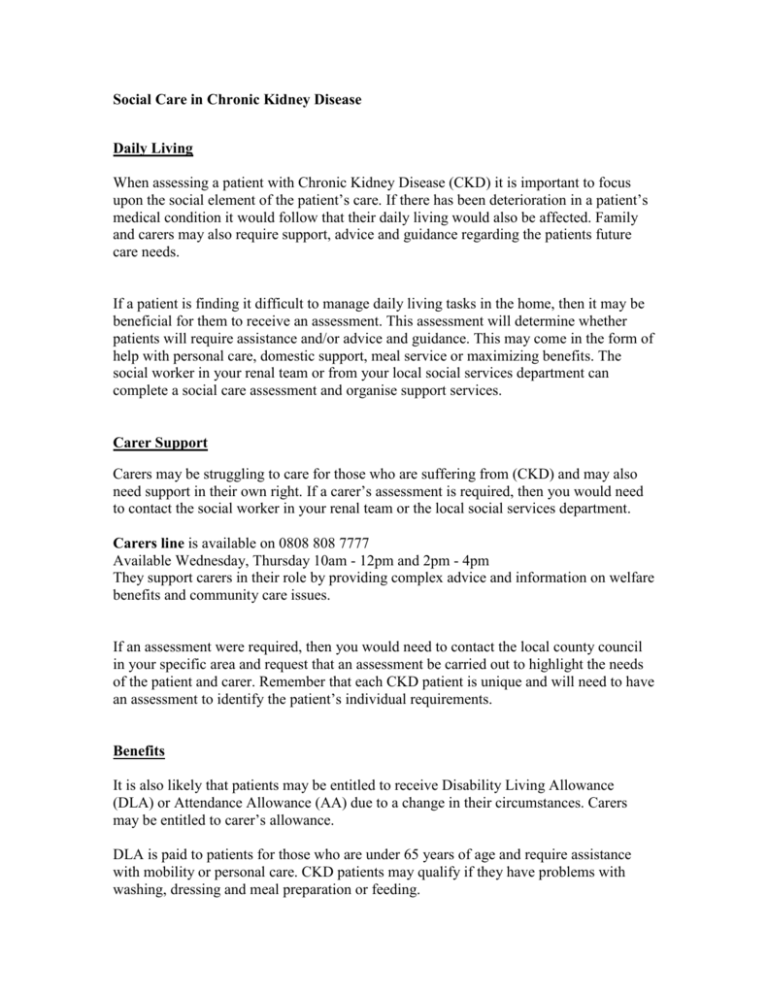
Social Care in Chronic Kidney Disease Daily Living When assessing a patient with Chronic Kidney Disease (CKD) it is important to focus upon the social element of the patient’s care. If there has been deterioration in a patient’s medical condition it would follow that their daily living would also be affected. Family and carers may also require support, advice and guidance regarding the patients future care needs. If a patient is finding it difficult to manage daily living tasks in the home, then it may be beneficial for them to receive an assessment. This assessment will determine whether patients will require assistance and/or advice and guidance. This may come in the form of help with personal care, domestic support, meal service or maximizing benefits. The social worker in your renal team or from your local social services department can complete a social care assessment and organise support services. Carer Support Carers may be struggling to care for those who are suffering from (CKD) and may also need support in their own right. If a carer’s assessment is required, then you would need to contact the social worker in your renal team or the local social services department. Carers line is available on 0808 808 7777 Available Wednesday, Thursday 10am - 12pm and 2pm - 4pm They support carers in their role by providing complex advice and information on welfare benefits and community care issues. If an assessment were required, then you would need to contact the local county council in your specific area and request that an assessment be carried out to highlight the needs of the patient and carer. Remember that each CKD patient is unique and will need to have an assessment to identify the patient’s individual requirements. Benefits It is also likely that patients may be entitled to receive Disability Living Allowance (DLA) or Attendance Allowance (AA) due to a change in their circumstances. Carers may be entitled to carer’s allowance. DLA is paid to patients for those who are under 65 years of age and require assistance with mobility or personal care. CKD patients may qualify if they have problems with washing, dressing and meal preparation or feeding. AA is a benefit for those aged over 65 years of age that also require help with their mobility or daily personal care. Both benefits are paid from the benefits agency if the patient qualifies due to their daily need rather than their income. If help is needed with completing claim forms then a social worker from your renal team or a benefits advisor from your local social services dept will be able to help Free advice regarding disability benefits can be obtained from the benefits Agency on 0800 882 200 Parking and Travel The Blue Badge scheme provides a range of parking benefits for disabled people who travel either as drivers or as passengers. This scheme operates throughout the United Kingdom. Patients with CKD may ask for advice and access this scheme if they find that they get breathless whilst walking. The Blue badge scheme is accessed through a social worker, through the local social services dept or your GP. It is important when filling in the application form to be clear that the person requiring the blue badge has reduced mobility. General Advice Sometimes patients will also require help and support with employment, housing and financial issues. This information can be accessed through local government agencies or through the social worker in your renal team. Car, house and travel insurance may also need to be revisited with the patient and their families if there has been a change in their medical condition. The National Kidney Federation will be able to give you advice and guidance on this subject. The charity websites listed below are especially designed for assisting renal patients to give advice and guidance or financial assistance. These are listed below:www.britishkidney-pa.co.uk www.nkrf.org.uk www.kidney.org Updated November 2009
